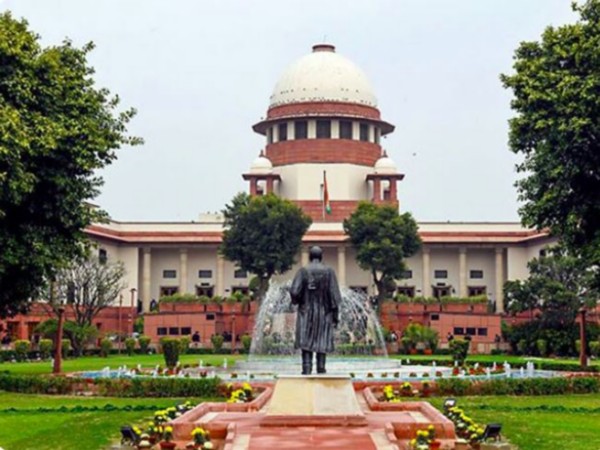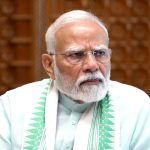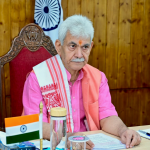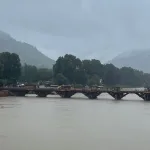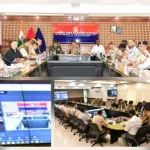The Supreme Court, while hearing pleas seeking direction to restore the statehood of the Union Territory of Jammu and Kashmir, on Thursday observed that in granting statehood, the ground situation has to be taken into consideration.
“You cannot ignore what happened in Pahalgam,” said a bench of CJI BR Gavai and Justice K Vinod Chandran.
Solicitor General Tushar Mehta, appearing for the Centre, said the government had assured statehood after elections, but there is a peculiar situation there.
He said the assembly elections were held in Jammu and Kashmir as promised to the Constitution bench that had upheld the abrogation of Article 370 and the bifurcation of Jammu and Kashmir into two Union Territories.
“This is not the time for petitioners to muddy the waters,” he further said.
Mehta sought eight weeks to take instruction from the government on the issue.
The top court was hearing applications seeking directions to the Centre to restore the statehood of the Union Territory of Jammu and Kashmir.
The applications had said that it becomes necessary that appropriate directions are passed directing the status of statehood of Jammu and Kashmir to be restored at the earliest in a time-bound manner, as had been undertaken by the Union of India.
Filed by college teacher Zahoor Ahmed Bhat and activist Khurshaid Ahmad Malik, the applications stated that despite the assurance given by the Solicitor General that Jammu and Kashmir’s statehood will be restored, the Union has not taken any steps in that regard in the years after the judgment in the Article 370 case.
The application was filed through advocate Soyaib Qureshi in the disposed of case of abrogation of Article 370 which the Supreme Court upheld the abrogation of the special status of Jammu and Kashmir.
“The applicants, being the conscious citizens of Jammu and Kashmir are aggrieved that, even after passing of 10 months of the order dated August 11, 2023, till date no steps have been taken to restore the status of statehood of Jammu and Kashmir as a state which is gravely affecting the rights of the inhabitants of Jammu and Kashmir and also violating the basic structure of federalism; and it is for that reason that the applicants have preferred the present application to seek appropriate directions to the Union of India for restoration of the statehood of Jammu and Kashmir in a time-bound manner within a period of two months,” stated the application.
If directions to restore the status of the statehood of Jammu and Kashmir are not passed at the earliest by this court, it would lead to grave harm being caused to the federal structure of the country, it added.
Referring to the polls held in Jammu and Kashmir, the application stated that the formation of the Legislative Assembly before the restoration of statehood would violate the idea of federalism, which forms part of the basic structure of the Constitution of India.
“Since the assembly elections were conducted peacefully, there would be no security concerns in case the apex court passed a direction to restore statehood to the Union Territory within a time-bound period,” it submitted.
“The delay in restoration of statehood would cause a serious reduction of democratically elected government in Jammu and Kashmir, causing grave violation of the idea of federalism, which forms part of the basic structure of the Constitution of India,” the application further added.
It was also contended that the conversion of the state of Jammu and Kashmir into two Union Territories has resulted in Jammu and Kashmir being given a lesser form of elected democratic government, which will soon be formed once the results of the Legislative Assembly are declared.
It added, “If the status of statehood is not restored to Jammu and Kashmir in a time-bound manner, grave prejudice would be caused to the citizens of Jammu and Kashmir, also leading to the violation of their fundamental rights and also gravely affecting the democratic structure of Jammu and Kashmir and its territorial integrity.”
“For Jammu and Kashmir, which has always had a federal relationship with the Union of India, it is of utmost importance that the status of statehood is restored “so that they can enjoy an autonomy in their individual identity and also play an important part in the overall development of the Country”, the application added.
On December 11, 2023, a five-judge Constitution bench had unanimously upheld the validity of the Union government’s 2019 decision to abrogate Article 370 of the Constitution, which conferred the special status of Jammu and Kashmir, while pointing out that Article 370 is a “temporary provision”.
The top court had taken into note Solicitor General Tushar Mehta’s submission that the Statehood of Jammu and Kashmir will be restored, except for the Union Territory of Ladakh.
It had directed that steps shall be taken by the Election Commission of India to conduct elections to the Legislative Assembly of Jammu and Kashmir by September 30, 2024.
Restoration of Statehood shall take place at the earliest and as soon as possible, it had added. (ANI)


